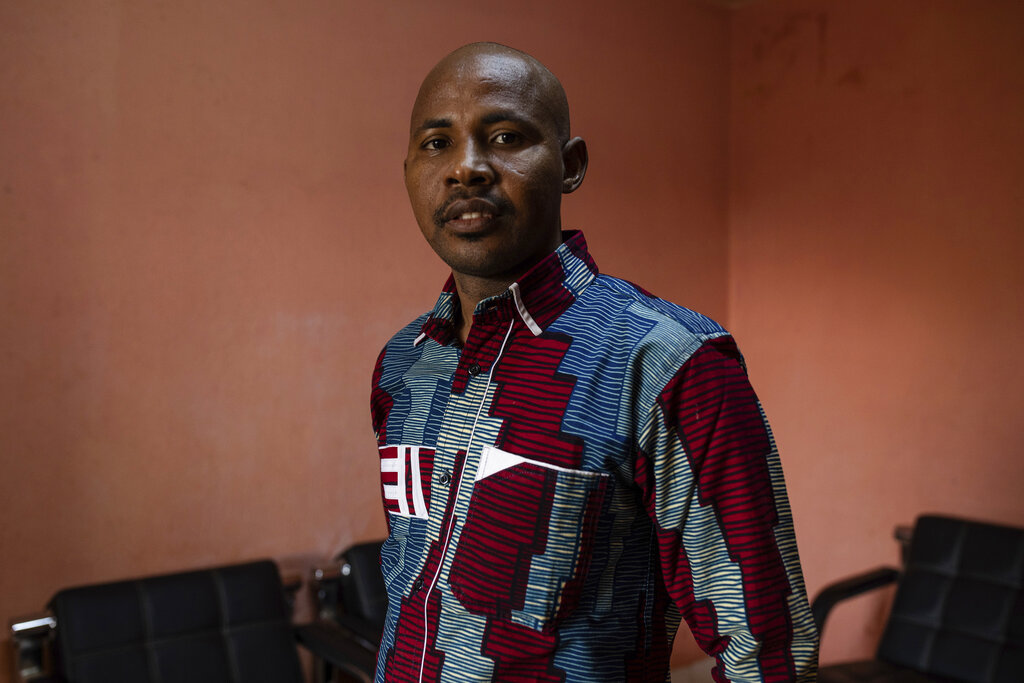ADF STAFF
Security forces in civilian clothes abducted Daouda Diallo, a prominent human rights defender in Burkina Faso, on December 1 as he was renewing his passport in Ouagadougou, the national capital.
Three days later, a picture of him armed and wearing military clothing circulated on social media.
Burkinabé security forces in early November leveraged a controversial law regarding the general mobilization to fight armed groups. The law allows authorities to sanction and silence civil society members and human rights defenders who criticize the military junta led by Capt. Ibrahim Traore, according to Amnesty International.
Diallo, 41, spoke against the law, which aims to create a “legal framework for all actions” to be taken against insurgents and gives Traore extensive powers to counter the insurgency, including limiting civil liberties and requisitioning people.
A 2022 winner of the Martin Ennals Award for Human Rights Defenders, Diallo is known for denouncing abuses by government security forces and demanding accountability.
“The simple fact of showing an independence of position is enough to be conscripted,” Ousmane Diallo, a researcher with Amnesty International in Burkina Faso, told The Associated Press. “Right now, civil society activists, human rights defenders and even leaders of opposition political parties do not dare express freely their opinions because this decree is being used to silence and intimidate all of the voices that are independent.”
The Collective Against Impunity and Stigmatization of Communities civic group, which Diallo founded, said in a statement that his well-being could be at risk and called for his “immediate and unconditional” release.
“The Burkina Faso government should not be combatting an insurgency by abusively conscripting activists and journalists to keep them quiet,” Ilaria Allegrozzi, senior Sahel researcher at Human Rights Watch, said on the organization’s website.
Diallo is one of about a dozen civil society activists, journalists and opposition party members who were informed by authorities that they were conscripted.
“Unsurprisingly, it was on the night of Saturday to Sunday November 5 that I learned I was part of a list of people requisitioned for the military front,” Ladji Bama, an investigative journalist opposed to forced enlistments, told Deutsche Welle (DW).
Bama, founding editor of Burkinabé news website Bam Yinga, and Issaka Lingani, regularly featured on BFI TV’s program “Presse Echos,” were ordered to serve three months in the military to fight against terrorism under the conscription policy, according to Reporters Without Borders (RSF).
Lingani reportedly went into hiding, while Bama left the country months before, due to threats from junta members and their supporters, according to the Media Foundation for West Africa.
Sadibou Marong, director of RSF’s sub-Saharan Africa bureau, called on authorities to rescind the summonses.
“Forcibly enlisting two journalists critical of the government to fight in the army constitutes a new attack on press freedom in Burkina Faso,” Marong said in a statement. “We condemn these grossly unjust conscription orders and call on the Burkinabé authorities to rescind them at once.”
Lingani, 64, told DW that the conscription policy is unpopular due to perceived abuses.
“What is really regrettable is that the authorities consider that sanctioning people means sending them to the front,” Lingani said. “That really belittles the noble meaning of war. Fighting today for your country should not be a sanction but be voluntary.”
Activists and bloggers Rasmané Zinaba and Bassirou Badjo of the movement Le Balai citoyen also have opposed their conscription orders.

